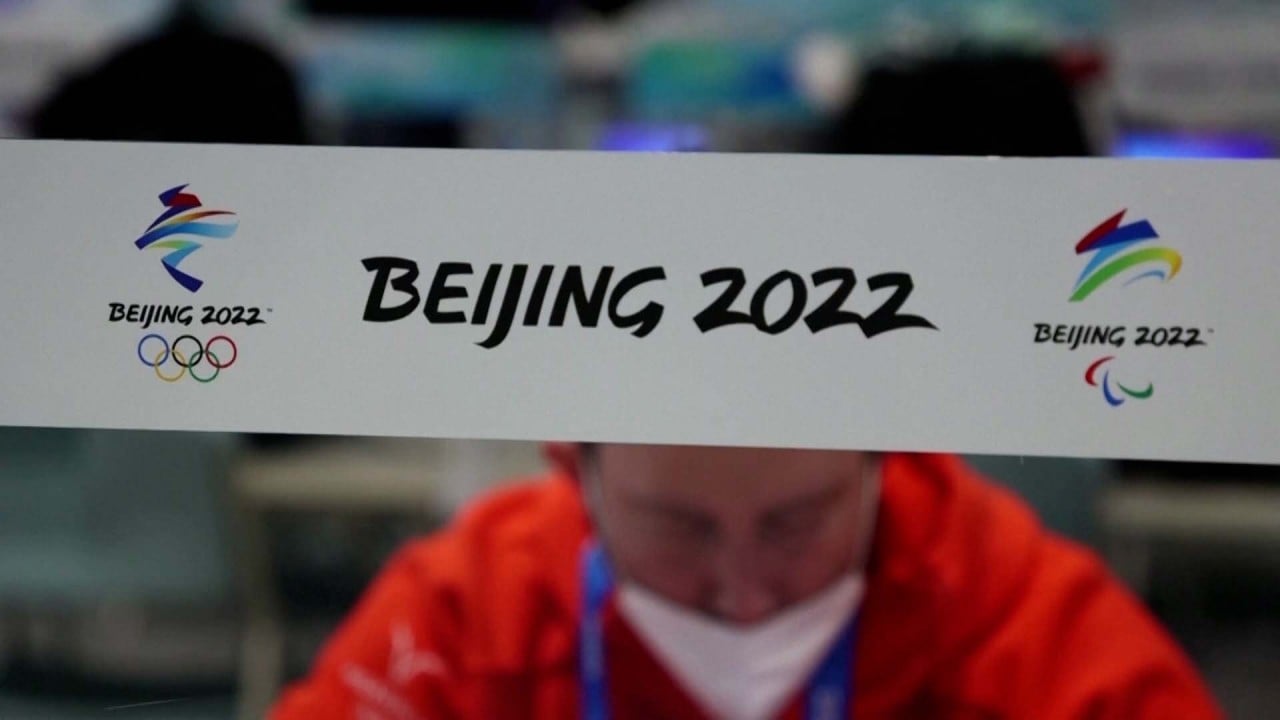
Winter Olympics Covid-19 cases down but ‘big challenges for Games organisers’
- Just 10 new cases detected within the event’s bubble, including six among athletes and team officials
- Complaints about food prompt South Korean committee to cater for their athletes
Among the cases, six were athletes and team officials and the rest were found among other “stakeholders”, a category that includes the media and Games partners, the event’s organising committee said.
Officials said four of the new cases were identified on arrival at Beijing Capital International Airport while the remaining six were picked up during nearly 72,500 daily tests conducted within the bubble.
A total of 363 infections have been found among people involved with the Games since January 23, according to the organising committee.
Games participants enter the closed loop on arrival in Beijing, a city battling to contain outbreaks of the Omicron and Delta variants.
Contact between Games participants and the Beijing public is strictly forbidden, with passers-by barred from helping even if an Olympic vehicle crashes.
Han Zirong, vice-president and secretary general of the Games committee, said safety came first for the international event.
“The pandemic has brought big challenges in terms of organising the Games. Safety is the foundation of everything,” she said.
“We take problems reported by athletes seriously and will solve issues that bring dissatisfaction as soon as possible.”
Some Olympic athletes who tested positive for the coronavirus in Beijing have complained about their quarantine conditions.
In an Instagram post from a quarantine hotel, Russian biathlon competitor Valeria Vasnetsova said she was struggling to eat the food provided.
“My stomach hurts, I’m very pale and I have huge black circles around my eyes. I want all this to end. I cry every day. I’m very tired,” Associated Press quoted her as saying on Saturday.
The athlete said she mostly survived on a few pieces of pasta because it was “impossible” to eat the rest, “but today I ate all the fat they serve instead of meat because I was very hungry”. She added she lost a lot of weight and “my bones are already sticking out”, according to the report.
South Korean news agency Yonhap reported on Sunday that athletes from the country had complained about food quality and options at the cafeteria in the Olympic Village.
The Korean Sport & Olympic Committee said it had started providing boxed meals for the country’s Olympians out of a makeshift kitchen near the athletes’ village.
Covid-19 lockdowns had marginal effect on death rates: study
Elsewhere in China, the southern Guangxi Zhuang autonomous region reported six local Covid-19 cases, while the city of Tianjin and Hebei province each found two infections.
The capital reported one local case outside the Olympic bubble, and there was one case each in Hunan and Guangdong provinces. There were also 70 imported cases, 40 of which were asymptomatic.


